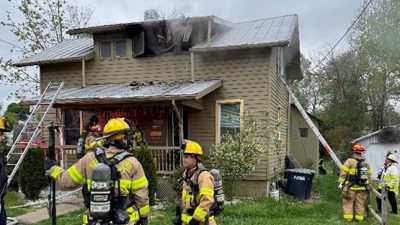
Raymond Scheppach, professor of public policy at the UVA Frank Batten School of Leadership and Public Policy and economic fellow at the Miller Center, leads the Commission.
The Commission urges collective, immediate action to achieve this goal, as well as a stronger higher education partnership between federal and state governments, the private sector, and postsecondary institutions.
“Policymakers must recognize that urgent action is needed,” stated Bob Graham, Commission co-chair, former Governor of Florida and former U.S. Senator. “Already, at least 10 other nations have surpassed the U.S in terms of the percent of population aged 25-34 having a postsecondary degree or certificate. The cost to our nation in terms of economic growth, job creation, and particularly unequal distribution of income, and all other benefits that accompany higher levels of education for our citizens is too high to fail.”
The report outlines four key challenges that must be overcome in order to meet the 2025 goal: The nation must help more students succeed in college, increase graduation rates, make college more affordable, and invest the necessary dollars to raise college access and attainment levels.
- First, the changing demographics of the college-going population must be recognized, and the growing cohorts of Hispanic and African-American students who often face barriers to accessing secondary education and attaining a degree must be supported and succeed in college.
- Second, the price and affordability of college must be less prohibitive, especially for those from median or lower income families.
- Third, sufficient state and federal financial support must be given to both institutions and students.
- Finally, persistently low college completion rates must be addressed with strategic interventions to support individual students.
In order to reach a working-age population that has a degree attainment rate of 60 percent by 2025, an additional 16.4 million people must graduate with two- or four-year degrees or industry certificates over and above the baseline between 2017 and 2025. To attain these numbers, the Commission offers nine recommendations:
- Increase federal and state institutional support.
- Enhance state revenue to support higher education.
- Stimulate the development and implementation of low-cost education delivery models.
- Encourage productivity in the postsecondary system.
- Create incentives for students to graduate on time.
- Help students and their families make better decisions.
- Increase and reform financial aid to target low-income students.
- Develop additional private funding.
- Take advantage of private-sector programs.
The Commission estimates that public colleges and universities will need approximately $30 billion more over current projections yearly between now and 2025 (2014 dollars) to reach the 60 percent goal. If the federal government, states, public colleges and universities, and the private sector work together in committing new resources to this goal, the costs can be covered and the nation can address the need for educational attainment and economic growth.
“While the U.S. higher education system is still the envy of the world, the nation is clearly at a major crossroads given the increased income inequality and the fact that many workers feel left behind economically,” stated Mike Castle, Commission co-chair, former Governor of Delaware and former U.S. Congressman. “It is our hope that national and state policy leaders gain valuable insights and policy direction from our work to build stronger federal, state, business and higher education partnerships focused on higher degree and certificate attainment rates.”
A panel event (and live webcast) is scheduled for Wednesday, December 14, 2016 from 9:30-11:30 am EST at the National Press Club to provide an overview of the Commission’s work and report. Additional information and registration can be found here .










